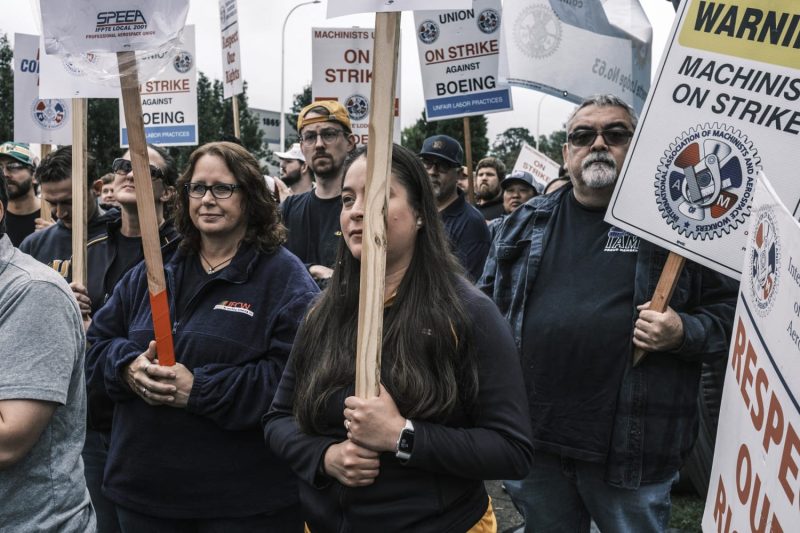
Boeing Takes Drastic Action: Slashes 17,000 Jobs Amid Factory Strike and Deepening Losses
Boeing to Cut 17,000 Jobs as Losses Deepen During Factory Strike
The aviation industry is facing significant challenges as major companies like Boeing struggle with financial losses due to various factors. Boeing, a leading aerospace company, recently announced plans to cut 17,000 jobs in response to mounting losses exacerbated by a factory strike. This decision reflects the harsh reality faced by many companies in the manufacturing sector as they grapple with the fallout from the global pandemic and other industry-specific challenges.
The aerospace industry has been hit hard by the COVID-19 pandemic, which disrupted air travel and led to a significant decline in aircraft orders. Boeing, already reeling from the grounding of its 737 Max aircraft following two fatal crashes, has been further impacted by the factory strike that has disrupted production. The combination of these factors has resulted in substantial financial losses for the company, forcing it to take drastic measures to reduce costs and stay afloat.
The decision to cut 17,000 jobs is a painful but necessary step for Boeing to address its financial woes. The company’s workforce reduction will primarily target employees in its commercial aircraft division, which has been particularly hard hit by the decline in demand for new planes. By streamlining its operations and reducing its workforce, Boeing aims to lower its expenses and improve its financial position in the face of continued uncertainty in the market.
While the job cuts are intended to help Boeing weather the storm, they will undoubtedly have a profound impact on the affected employees and their families. Losing a job is a stressful and challenging experience that can have far-reaching consequences, both financially and emotionally. It is essential for Boeing to provide support and resources to help affected employees navigate this difficult transition and find new opportunities in the job market.
In addition to the job cuts, Boeing is also exploring other cost-saving measures to shore up its finances. The company is considering consolidating its facilities and streamlining its supply chain to reduce expenses and improve efficiency. These efforts are part of a broader strategy to position Boeing for long-term success and sustainability in a highly competitive and challenging market.
As Boeing grapples with the fallout from the factory strike and other challenges, the aerospace industry as a whole is facing a period of uncertainty and transformation. Companies in the sector must adapt to changing market conditions, technological advancements, and shifting customer preferences to remain competitive and relevant. While the road ahead may be challenging, strategic decision-making and proactive measures can help companies like Boeing navigate these turbulent times and emerge stronger on the other side.
